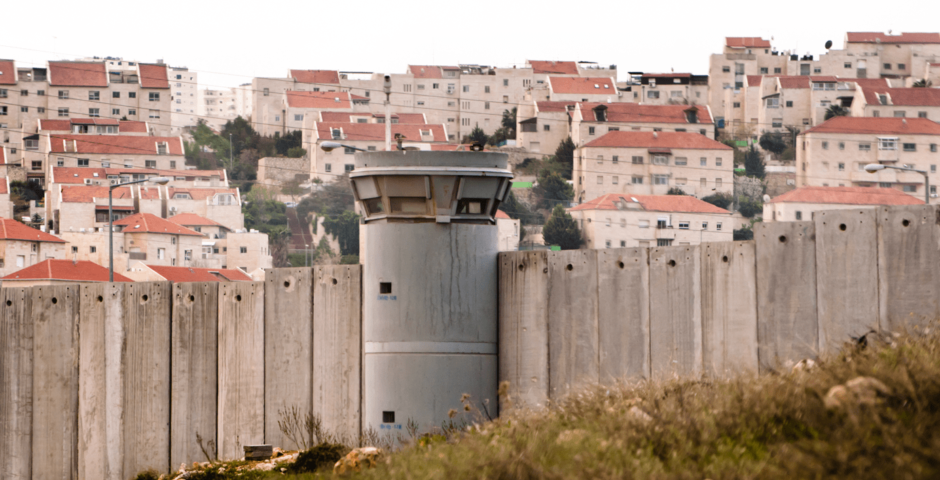Europe’s stake in illegal settlements in the Palestinian Territories

How European trade supports the illegal Israeli settlement economy.
In the war between Israel and Hamas, the Israeli occupation of the Palestinian Territories plays an important role. The construction and expansion of illegal settlements in these territories is condemned by the international community because it violates international humanitarian law and human rights treaties. International condemnation of settlement politics, therefore, seems to conflict with allowing European trade and investment that contributes to Israeli settlement politics. The previous article in this diptych discussed Europe’s responsibility in regulating trade with illegal settlements and looked at options for a trade ban. European governments and institutions also have an important role to play when it comes to monitoring. Improving transparency supports member states in enforcing current trade directives and a potential trade ban in the future, and it sharpens the differentiation between trade with Israel on the one hand and trade with illegal settlements on the other.
Especially in the civil sector, there are organizations actively engaged in monitoring. To improve the monitoring of trade with illegal settlements, the EU can cooperate with civil society. Civil society organizations have the necessary knowledge and experience to monitor trade with illegal settlements, so the EU does not have to reinvent the wheel. In this article, learn more about the databases for monitoring business activities in illegal settlements, and what steps European governments and institutions can take to address the problem of investment in illegal settlements. Like trade bans, monitoring could be widely applied to illegal settlements worldwide. This would allow companies and investors to be held accountable for business activities that violate human rights and humanitarian law. In this way, European institutions and governments have the tools to form and enforce policies that are in line with international laws and regulations.
Opportunities for monitoring: the UN and civil society as examples
Creating transparency about European investments in Israeli settlements gained new momentum in 2016 when a UN Human Rights Council (OHCHR) resolution called for the annual publication of a list of companies that directly and indirectly aid or benefit from the construction and growth of illegal Israeli settlements in the Palestinian Territories. The list was supposed to promote transparency and accountability, but its publication was blocked in part by political pressure from Israel and the United States of America (US). Despite repeated calls for the list to be made public, it was not finally published until February 2020.
The list included 112 companies involved in the illegal settlement economy. These companies were guilty of, among other things, supplying materials for the construction and surveillance of the settlements, providing services and facilities, such as transportation, that maintain the settlements, and using natural resources for commercial purposes. So far, the UN has failed to update this list annually and the list has been criticized for being incomplete. However, the UN Working Group on Business and Human Rights (UNWG) has issued several reports in recent years that tighten guidelines for doing business in conflict zones and situations where human rights violations occur.
Databases and surveys by civil society
Civil society organizations have called for clarity on the UN list update process and have also conducted their own independent research on investments in illegal Israeli settlements. An international coalition of 24 Palestinian and foreign civil society organizations under the name Don’t Buy Into Occupation (DBIO) released a report on this in 2021 and 2022. DBIO’s most recent survey, which ran from 2019 to 2022, found that 725 European financial institutions had financial relationships with 50 companies actively involved in Israeli settlements. The European investors were mainly banks, asset managers, insurance companies, and pension funds. DBIO has a public database that lists European creditors and investors involved in illegal Israeli settlements in the occupied territories.
Because DBIO’s database focuses on European financial investors in companies operating in settlements, it also reveals the indirect impact of European trade on Israeli settlement policy. This raises questions about the comprehensiveness of the current trade policy with Israel, in which settlement trade is still permitted. Not only are guidelines needed for importing goods from the settlements, but European direct and indirect investment in the construction and maintenance of the settlements should be scrutinized to bring European policy in line with the UN Guiding Principles on Business and Human Rights and international law.
In addition to the DBIO Coalition’s database, the independent research center Who Profits has also set up a database that is regularly updated. The database highlights economic exploitation, settlement enterprise and control of the Palestinian and Syrian populations in occupied territories. Many civil society organizations draw on Who Profits’ resources for their actions. The Who Profits database provides detailed information about the companies in the database, including a description of their involvement in settlements, relevant information about the company such as subsidiaries and major shareholders, and the settlements where the company operates.
Investigate, a research project of the American Friends Service Committee (AFSC), has a similar database on companies involved in state violence and human rights violations in the occupied territories. The project builds on and verifies Who Profits’ information on corporate involvement in the settlement industry, exploitation of natural resources in occupied territories, and wall checkpoints. In addition, the project conducts its research on the provision of weapons and military equipment and discrimination against Palestinians. Investigate has created a divestment list and calls on financial investors to divest investments in companies on this list.
Investments in agriculture, settlement construction, population control and tourism
The databases target European companies and financial investors involved in a wide range of activities in illegal settlements that harm the occupied territories and their populations. The companies and investors operate in various sectors, ranging from agriculture and agricultural exports to providing materials and services for settlement construction and population monitoring and control in occupied territories. In many cases, resources such as water and land in the occupied territories are exploited and polluted for commercial gain.
In addition to the settlement construction, security and agriculture sectors, another sector that is highlighted in the databases and reports of civil society organizations is tourism. Organizations such as Amnesty International, Human Rights Watch (HRW), Stichting Onderzoek Multinationale Ondernemingen (SOMO), Global Legal Action Network (GLAN) and Al-Haq concluded that tourism made a significant financial contribution to the illegal settlement economy. Package tours to Israel and Israeli settlements account for about one-third of inbound tourism. The year before the coronavirus pandemic, a record 4.55 million tourists visited Israel. Their income totaled 2.6% of GDP. More than half of the tourists report visiting sights located in the occupied territories, such as the wall and religious sites like the Old City in East Jerusalem and Bethlehem. European providers such as the Dutch Booking.com and the Spanish eDreams are taking advantage of this economy, offering stays in various illegal settlements. Instead of profiting from the settlement economy, these companies could invest in collaborations with Palestinian-run tourism organizations operating in the Palestinian territories.
What can Europe do?
The current escalation of the conflict will have a major impact on the Israeli economy and the economy of the illegal settlements. For example, tourists are being evacuated and other sectors will also be strained by the effects of the war. Many Western countries are now expressing their support for Israel. Yet this does not mean that they thereby approve of Israeli annexations of Palestinian territories. This makes it all the more important to make the distinction between Israel and the occupied territories explicit. Differentiation can thus be applied to separate current expressions of support for Israel from the condemnation of the Israeli settlement policy. Moreover, for future reconstruction, differentiation will also play an important role if Europe wants to provide aid without supporting illegal settlement construction. In the long run, therefore, a well-defined trade policy and adequate monitoring are necessary.
The DBIO Coalition report makes a number of recommendations for European governments and institutions, including banning settlement products such as wines, dates and other agricultural products from the European market. Furthermore, the report includes recommendations such as raising and clarifying international guidelines and advice for companies on doing business with occupied territories, aligning legislation with existing international guidelines such as the Guiding Principles on Business and Human Rights, and taking steps to end the involvement of European financial institutions in the settlement economy. DBIO also encourages public institutions not to establish ties with companies operating in the settlement economy and calls for the coalition to ensure that business-related human rights violations and international crimes can be prosecuted at the local and European levels.
The advice to support OHCHR’s annual publication of the UN list of business enterprises involved in Israeli settlements is also important. So far, the EU has only distributed a list of areas excluded from the trade treaty with Israel, but there is still no monitoring of business activities in the occupied territories. If a trade ban is considered, not only is it important to have an updated list of companies and investors in Israeli settlements, but consideration will have to be given to whether a general list of business activities in occupied territories worldwide should be established. For example, in addition to studies on occupied Palestinian territories, there are also case studies of business activities in Crimea and Western Sahara. When Europe trades with occupied territories and the illegal settlements located therein, it sends the message that the occupation itself is also tolerated. Thus, to avoid this kind of discrepancy with international law, the EU will have to tighten the guidelines and consequences for trading with illegal settlements. Monitoring business activities here is both a first step to support policy-making and an opportunity for control.
Luna Verbaas is an undergraduate student of Liberal Arts and Sciences at Utrecht University with a specialisation in International Relations in Historical Perspective and Philosophy, Politics and Society.
Image: Shutterstock




